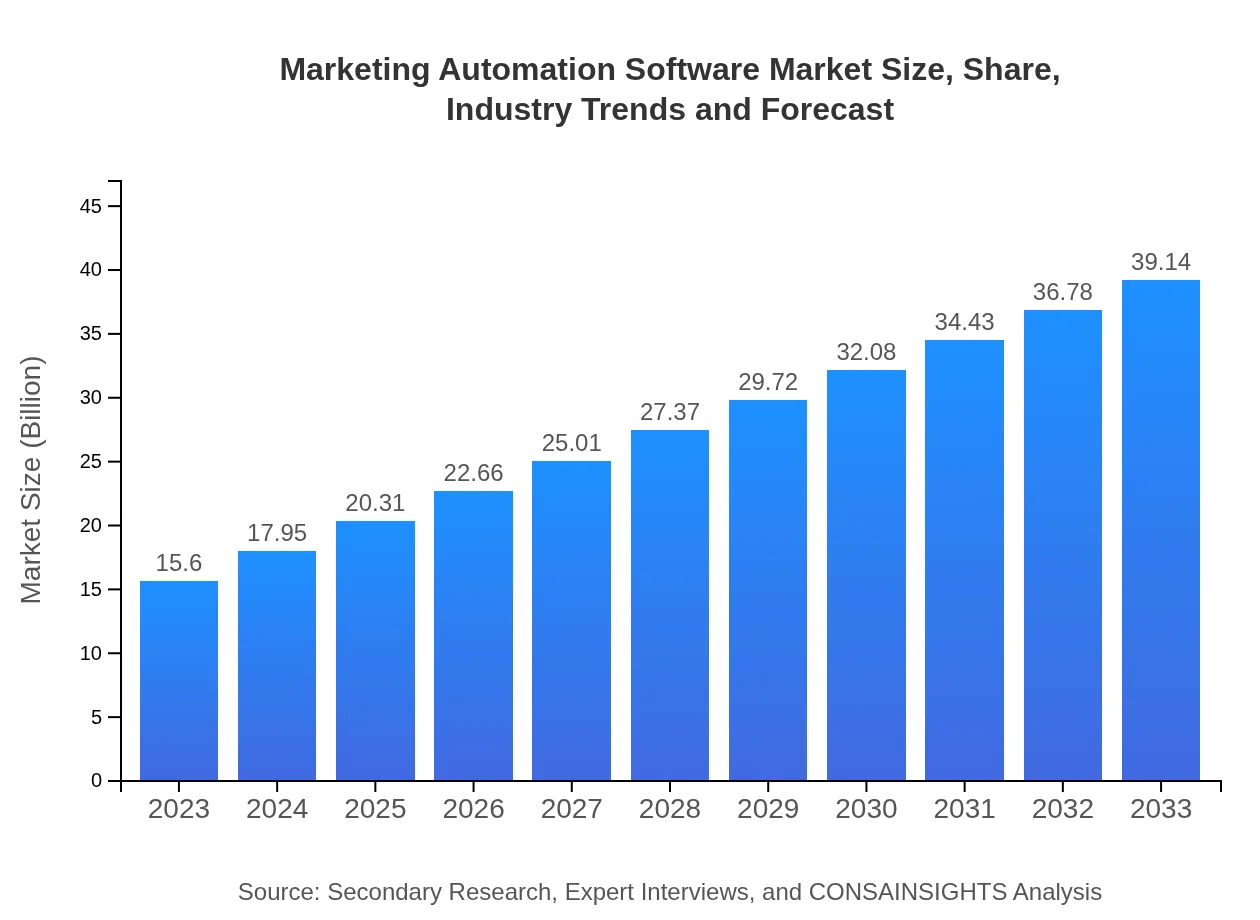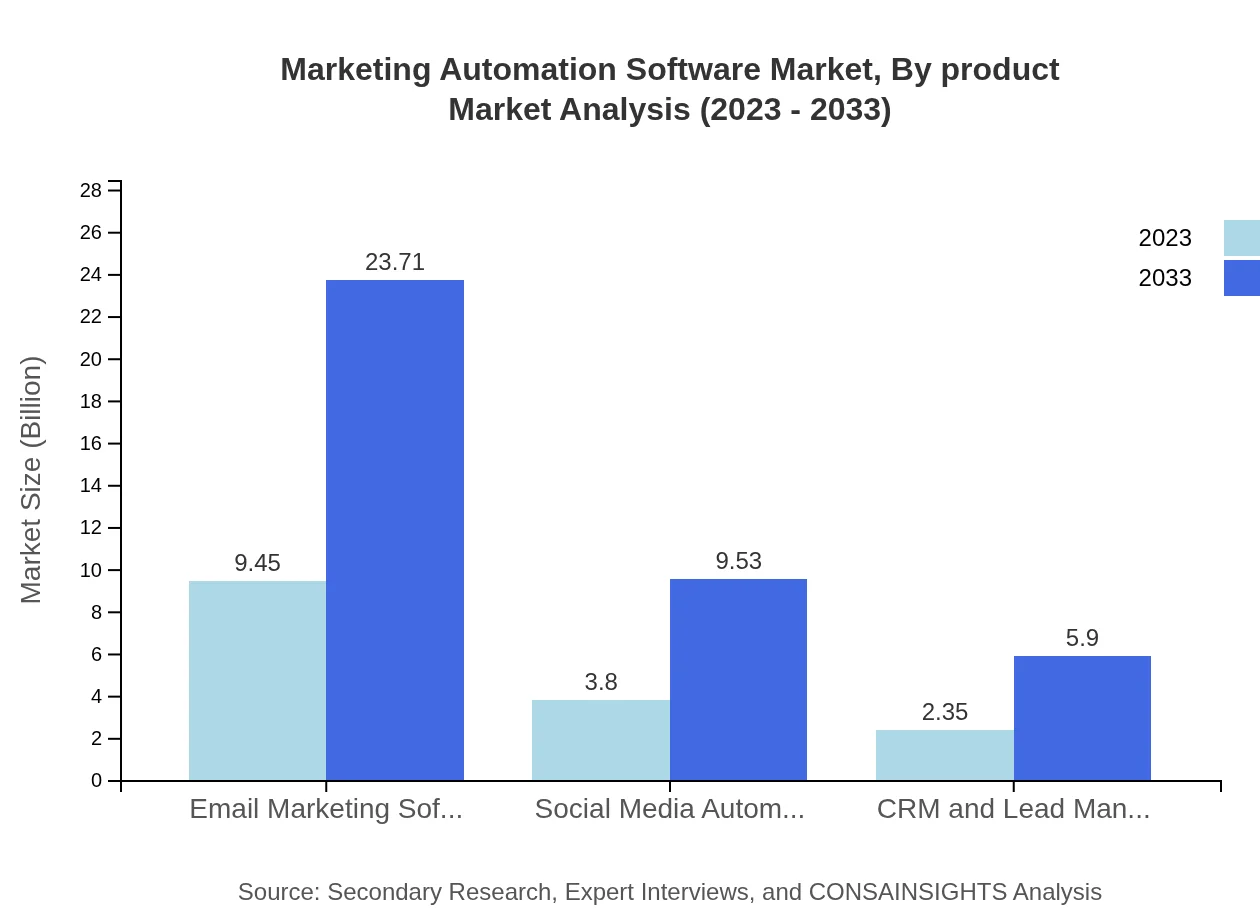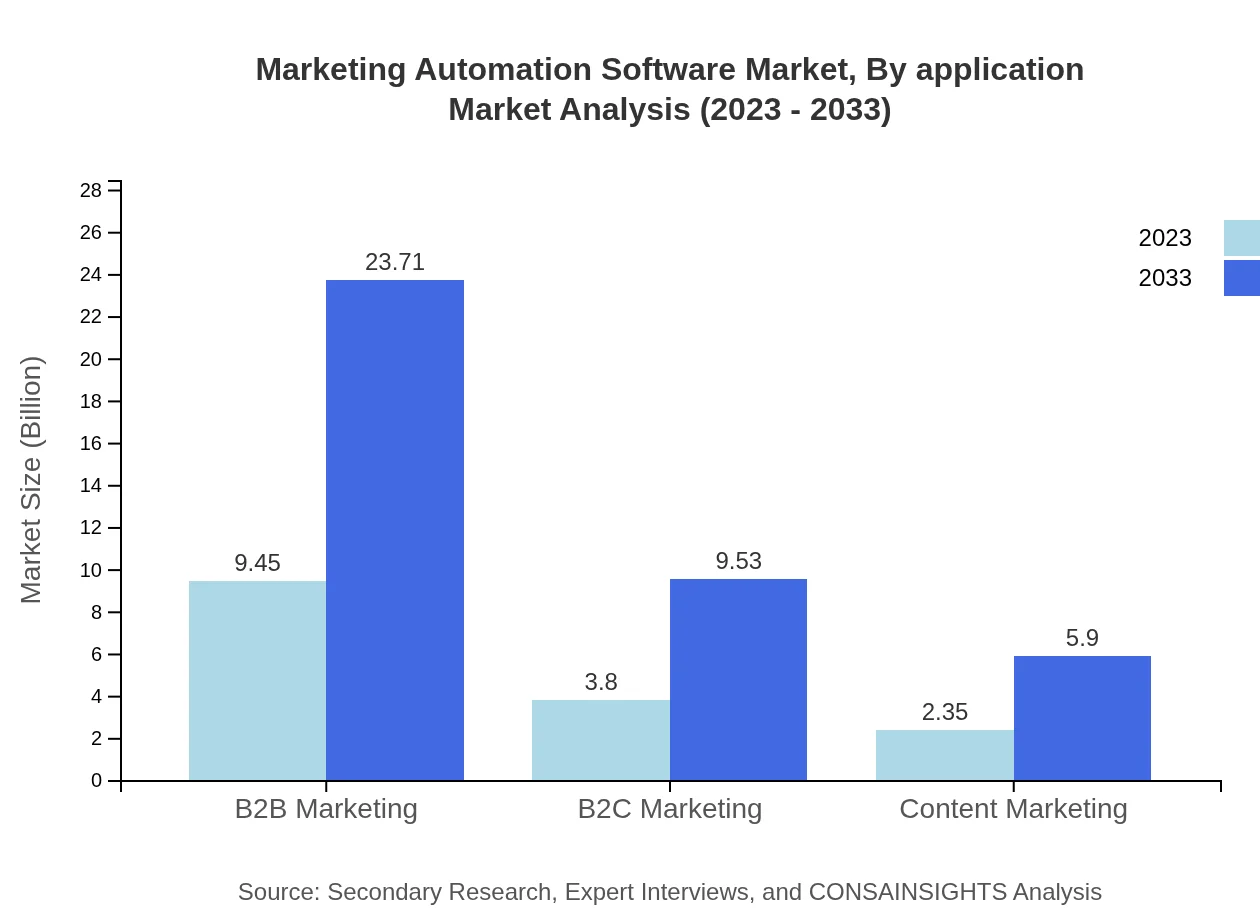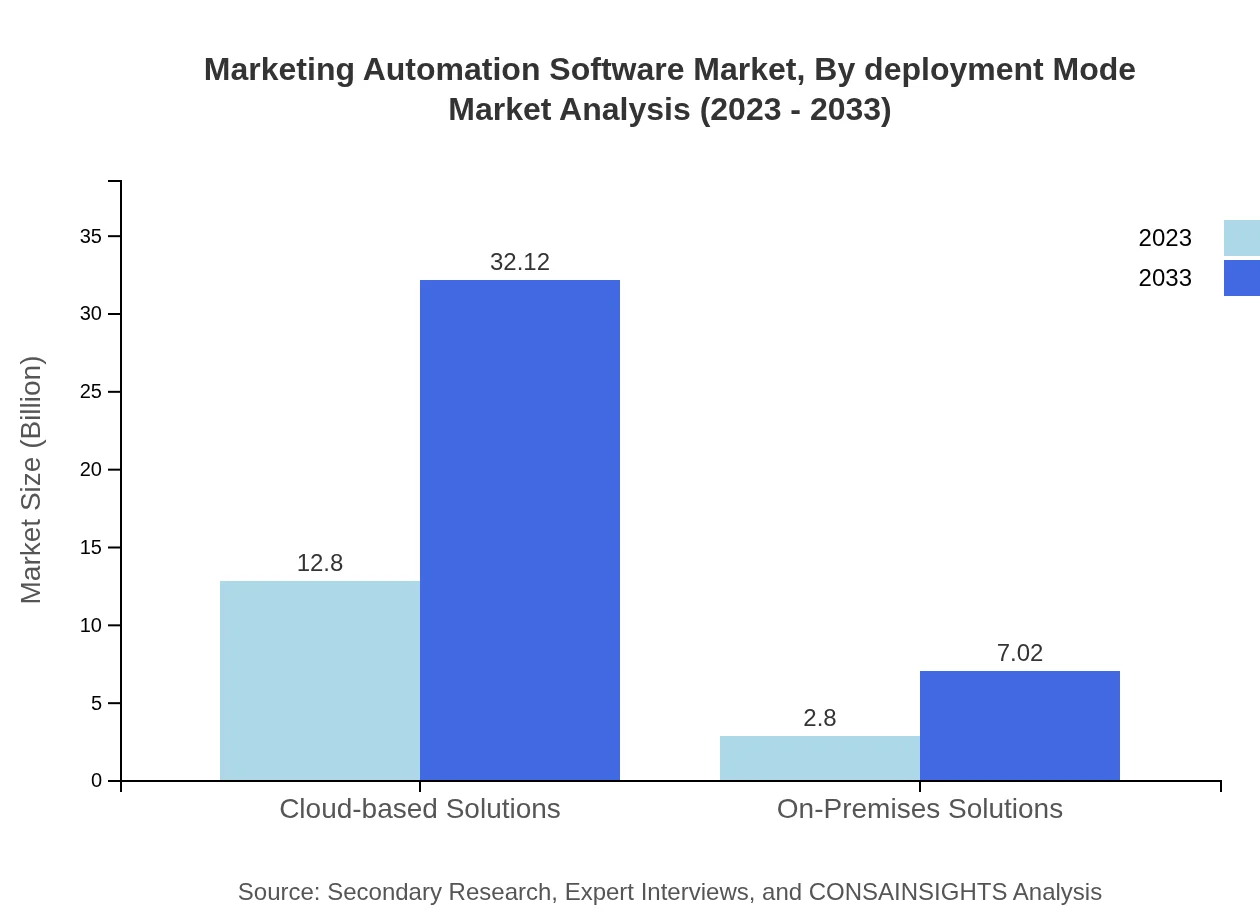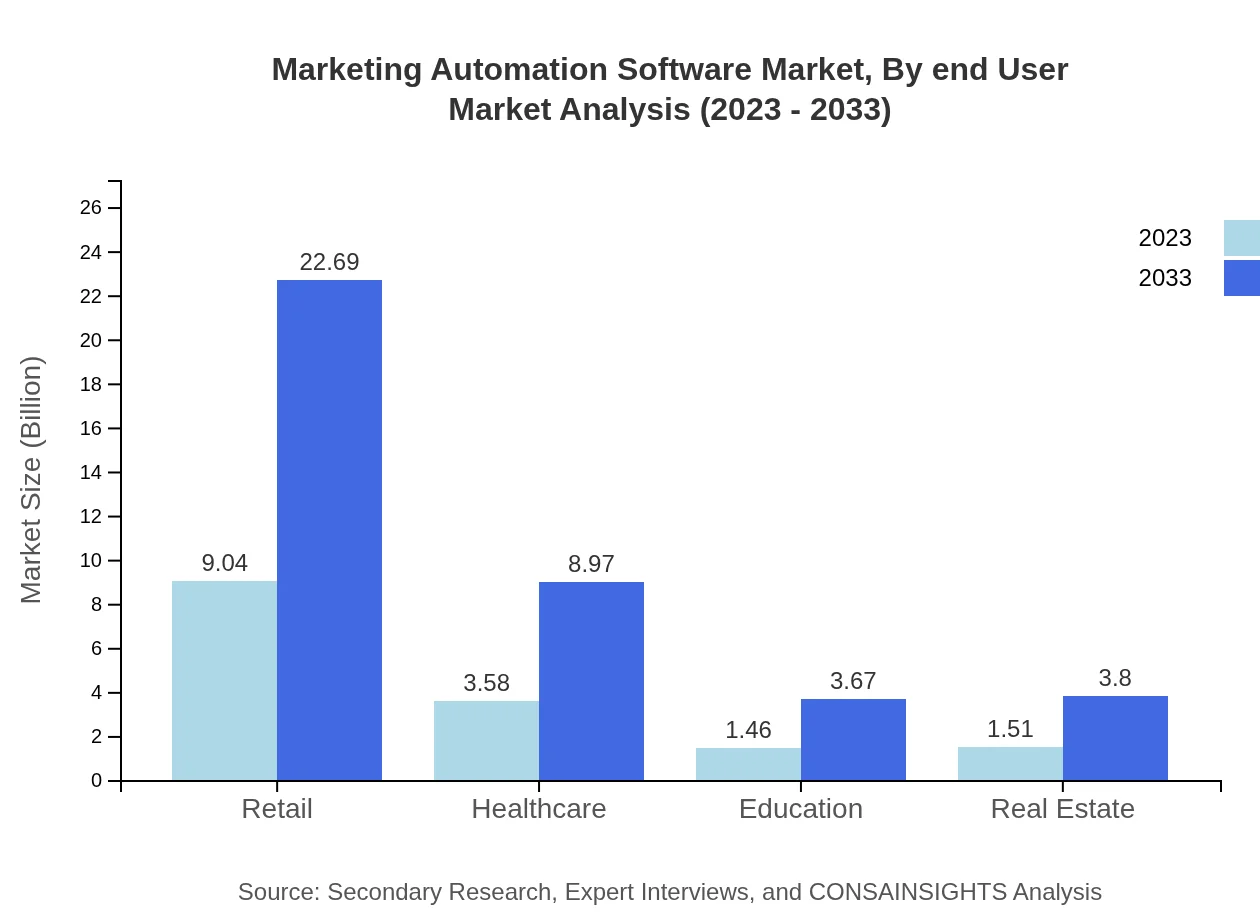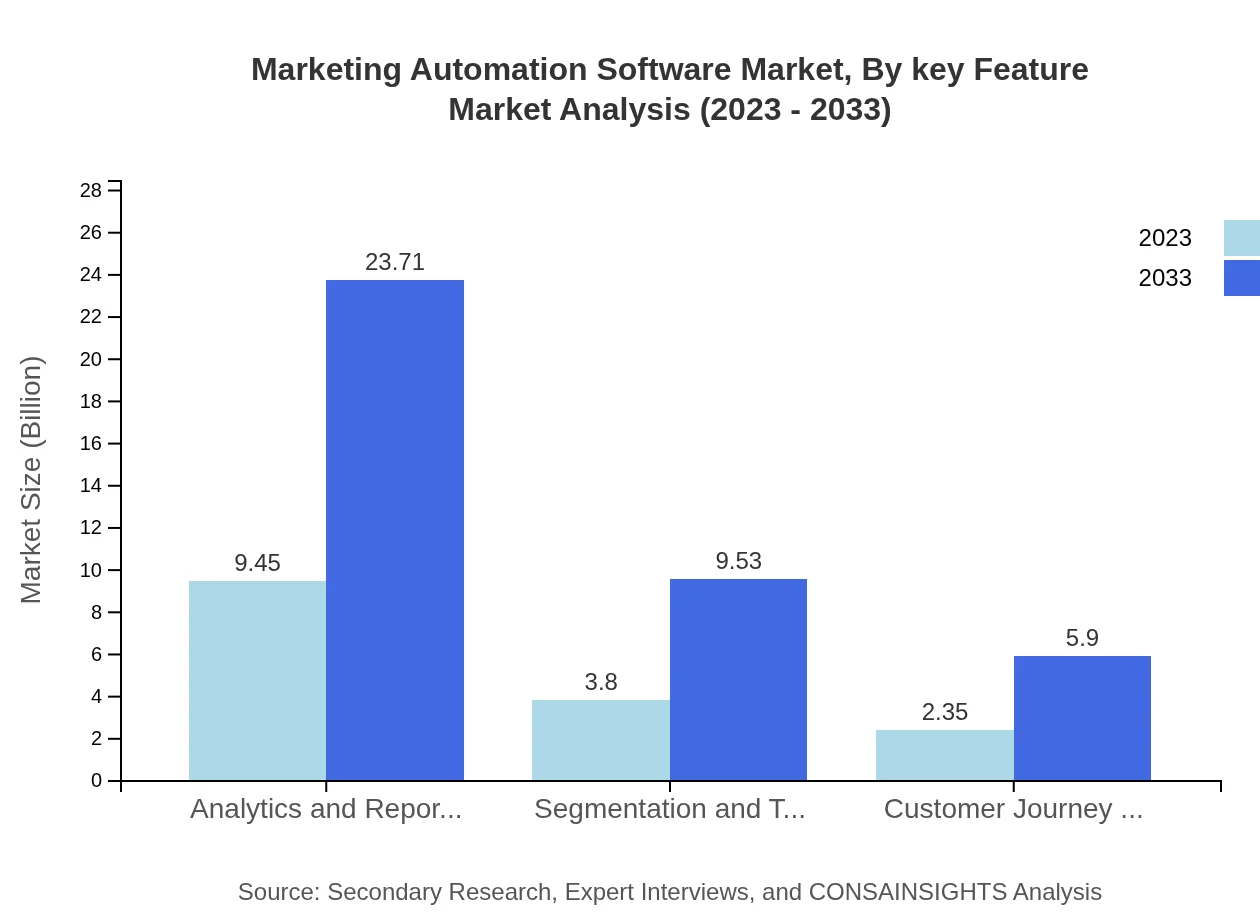Marketing Automation Software Market Report
Published Date: 31 January 2026 | Report Code: marketing-automation-software
Marketing Automation Software Market Size, Share, Industry Trends and Forecast to 2033
This report provides a comprehensive analysis of the Marketing Automation Software market, covering insights on size, trends, growth forecasts, and regional analyses from 2023 to 2033.
| Metric | Value |
|---|---|
| Study Period | 2023 - 2033 |
| 2023 Market Size | $15.60 Billion |
| CAGR (2023-2033) | 9.3% |
| 2033 Market Size | $39.14 Billion |
| Top Companies | HubSpot, Salesforce, Marketo, Mailchimp, Pardot |
| Last Modified Date | 31 January 2026 |
Marketing Automation Software Market Overview
Customize Marketing Automation Software Market Report market research report
- ✔ Get in-depth analysis of Marketing Automation Software market size, growth, and forecasts.
- ✔ Understand Marketing Automation Software's regional dynamics and industry-specific trends.
- ✔ Identify potential applications, end-user demand, and growth segments in Marketing Automation Software
What is the Market Size & CAGR of Marketing Automation Software market in 2023?
Marketing Automation Software Industry Analysis
Marketing Automation Software Market Segmentation and Scope
Tell us your focus area and get a customized research report.
Marketing Automation Software Market Analysis Report by Region
Europe Marketing Automation Software Market Report:
In Europe, the market is estimated at $4.13 billion in 2023, with an anticipated growth to $10.36 billion by 2033, as European companies increasingly adopt automation to enhance customer experiences and streamline marketing campaigns.Asia Pacific Marketing Automation Software Market Report:
In the Asia Pacific region, the Marketing Automation Software market is estimated at $2.98 billion in 2023 and is expected to grow to $7.47 billion by 2033, driven by rapid digital adoption and increased investment in marketing technologies.North America Marketing Automation Software Market Report:
North America dominates the market with a size of $5.87 billion in 2023, projected to expand to $14.72 billion by 2033. This growth is fueled by the presence of major tech players and high demand for advanced marketing solutions.South America Marketing Automation Software Market Report:
The South American market stands at $1.43 billion in 2023, with projections reaching $3.59 billion by 2033, as organizations begin to prioritize marketing automation to compete in a fast-evolving digital landscape.Middle East & Africa Marketing Automation Software Market Report:
The Middle East and Africa market is valued at $1.19 billion in 2023 and is projected to grow to $3.00 billion by 2033, driven by a rise in digital marketing activities and the need for efficient marketing strategies.Tell us your focus area and get a customized research report.
Marketing Automation Software Market Analysis By Product
Key products driving the Marketing Automation Software market include Email Marketing Software, Social Media Automation, and CRM systems. Email Marketing is expected to grow from $9.45 billion in 2023 to $23.71 billion by 2033, reflecting its critical role in direct marketing. Similarly, Social Media Automation is predicted to increase from $3.80 billion to $9.53 billion, highlighting the importance of social engagement.
Marketing Automation Software Market Analysis By Application
Applications such as B2B and B2C marketing significantly influence market trends. The B2B segment is projected to surge from $9.45 billion in 2023 to $23.71 billion by 2033, while the B2C segment is expected to reach $9.53 billion, driven by increased online shopping and digital interactions.
Marketing Automation Software Market Analysis By Deployment Mode
The market is also divided into Cloud-based and On-Premises solutions. Cloud-based solutions dominate, accounting for $12.80 billion in 2023, with growth potential to $32.12 billion by 2033, thanks to their flexibility and cost-effectiveness.
Marketing Automation Software Market Analysis By End User
Industries such as Retail, Healthcare, and Education are the primary adopters. The Retail sector is expected to expand from $9.04 billion to $22.69 billion, while Healthcare is projected to grow from $3.58 billion to $8.97 billion, as personalized marketing becomes a necessity.
Marketing Automation Software Market Analysis By Key Feature
Key features like Analytics and Reporting, Segmentation, and Customer Journey Mapping are pivotal for understanding consumer behavior. Analytics will grow from $9.45 billion to $23.71 billion due to the need for data-driven marketing strategies, whereas Customer Journey Mapping will expand from $2.35 billion to $5.90 billion.
Marketing Automation Software Market Trends and Future Forecast
Tell us your focus area and get a customized research report.
Global Market Leaders and Top Companies in Marketing Automation Software Industry
HubSpot:
HubSpot provides a comprehensive inbound marketing platform designed to help businesses attract visitors, convert leads, and close customers with its suite of automation tools.Salesforce:
Salesforce offers robust CRM solutions combined with powerful marketing automation features, enabling businesses to manage relationships and campaigns effectively.Marketo:
Marketo, a part of Adobe, specializes in marketing automation software that enhances engagement and performance throughout the buyer’s journey.Mailchimp:
Mailchimp is renowned for its email marketing capabilities but has expanded its offerings to include a broad range of marketing automation tools for small to medium-sized businesses.Pardot:
Pardot is Salesforce's B2B marketing automation solution, offering tools for lead generation and marketing campaign automation.We're grateful to work with incredible clients.









FAQs
What is the market size of the Marketing Automation Software?
The Marketing Automation Software market is projected to reach a size of $15.6 billion by 2033, with a CAGR of 9.3%. This significant growth highlights the increasing demand for automation in marketing processes across various sectors.
What are the key market players or companies in the Marketing Automation Software industry?
Key market players in the Marketing Automation Software industry include Salesforce, HubSpot, Marketo, Oracle, and Adobe. These companies are leading the development of innovative solutions and services to enhance marketing efficiency and effectiveness.
What are the primary factors driving the growth in the Marketing Automation Software industry?
Growth in the Marketing Automation Software industry is driven by increased adoption of digital marketing strategies, the need for personalized marketing approaches, and the rise of data analytics capabilities, significantly improving customer engagement and conversion rates.
Which region is the fastest Growing in the Marketing Automation Software?
The fastest-growing region in the Marketing Automation Software market is Asia Pacific, expected to grow from $2.98 billion in 2023 to $7.47 billion in 2033. This surge is fueled by the rapid expansion of digital marketing initiatives in the region.
Does ConsaInsights provide customized market report data for the Marketing Automation Software industry?
Yes, ConsaInsights offers customized market report data tailored for the Marketing Automation Software industry. Clients can expect personalized insights based on specific needs, including regional trends and market segmentation.
What deliverables can I expect from this Marketing Automation Software market research project?
From the Marketing Automation Software market research project, expect comprehensive reports detailing market size, growth forecasts, competitive analysis, key trends, and insights into regional and segment data, providing a well-rounded perspective.
What are the market trends of Marketing Automation Software?
Current market trends in Marketing Automation Software include a shift towards cloud-based solutions, increased focus on AI-driven analytics, and the integration of multi-channel campaigns, reflecting the industry's adaptation to consumer behavior and technological advancements.

